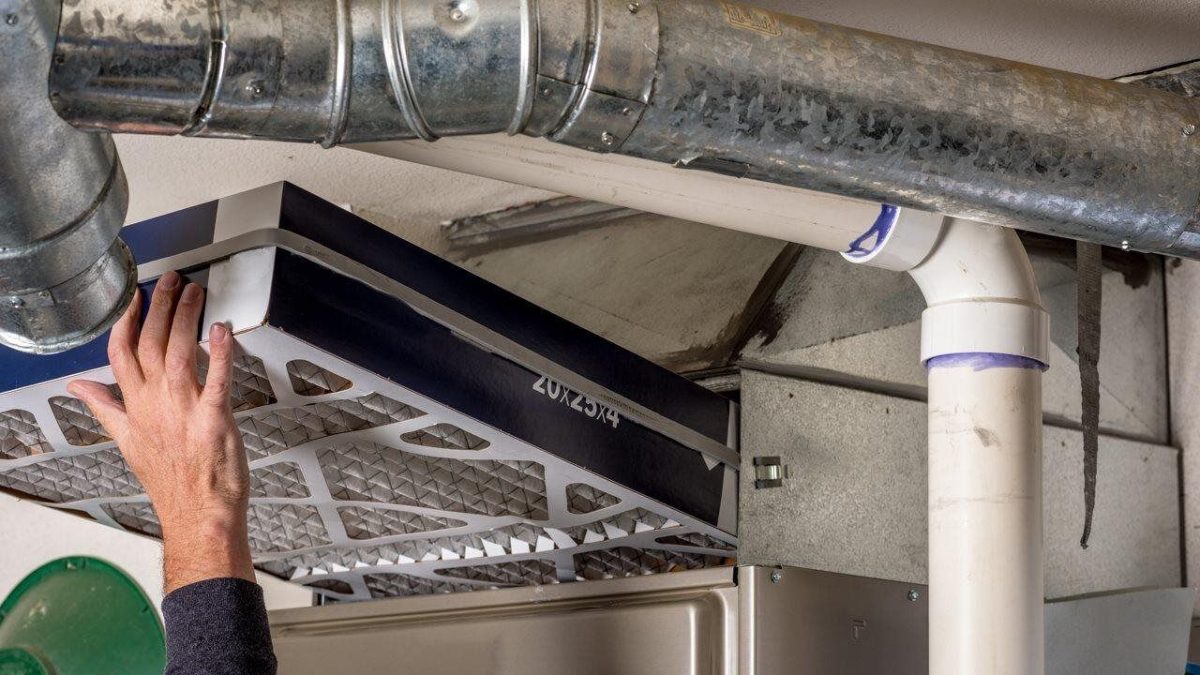(BPT) – When the Morrells needed to upgrade to a larger home in Santa Clarita, California, a year ago to accommodate a growing multi-generational family, surprises sprung up in the property with a number of failing systems. The home inspection didn’t reveal certain trouble spots that would cost thousands of dollars in repairs later. However, after owning multiple homes before, the Morrells understood that their homeowners insurance and warranties could help defray many — though not all — of these costs, and they were prepared to complete routine maintenance throughout their home to prevent damages.
Real estate industry sources report that home purchases are rising once again, despite record high prices and interest rates, and many of these new homeowners might be strapped for cash should an unforeseen issue occur. As a homeowner, you need to make time for routine maintenance to keep your home in good condition. Regular maintenance can help reduce the possibility of costly and time-consuming repairs.
“We’re taught to have our vehicle’s motor oil changed every few thousand miles to keep it in good running condition and a home is no different in that it needs regular attention too,” said Bonnie Lee, Mercury Insurance Vice President of Property Claims. “Putting off tasks until something breaks or needs repair can lead to much larger and more expensive headaches.”
Four areas homeowners should check regularly to keep it safe include:
TLC for the airways. Heating, ventilating and air conditioning (HVAC) is the system that keeps the temperature inside a home comfortable. In order to not only keep running costs low but also extend the life of it, owners need to give it love and attention. A small leak or failure to replace an air filter could cause your annual energy bill to skyrocket.
A dirty air filter is the most common cause of problems for an HVAC system. When the air filter is dirty, the blower has to work harder to force air through the debris, increasing the system’s energy consumption or overworking its capabilities. Regularly checking, cleaning and replacing your filters can help prevent this problem.
“The last thing a homeowner wants to deal with is an unexpected cost, especially one that can be as expensive as having to replace a furnace or air conditioner,” said Lee. “If you’re concerned about having to come up with the funds to replace a system that fails before reaching the end of its life expectancy, there are insurance coverages like Mercury’s home systems protection that cost only a few dollars each month to replace these thousands of dollars worth of expenditures.” Home systems protection excludes failures that are a result of normal wear and tear, but it covers unexpected mechanical and electrical breakdowns.
Look up at what protects you. The first step of roof inspection begins inside the home. Look for damp spots or water stains on the ceiling or for cracked plaster along the wall as these can be signs of water damage. During dry, warm months, conduct a visual examination of your roof’s exterior for any cracked or missing shingles. Notice if you have to trim back tree branches that make contact with the roof as they can cause damage. If you suspect it needs attention, contact an experienced roofer who can perform a thorough inspection with drones and provide a condition report, like Mercury’s partnership with Roof Rx. Remember, roof repairs required because of damage caused by severe weather are covered by your insurance. Roof repairs that are necessary due to lack of maintenance, age, or standard wear and tear are not.
Clean the gutters. Gutters are necessary to direct water away from your home’s foundation. Their exposure to the elements means that they need to be cleaned and inspected regularly. While cleaning out dirt and leaves, make sure the gutters are securely attached to your house. The weight of heavy snowfall, rain and dirt can cause gutters to loosen and pull away from the home.
“Our data shows that routine maintenance means lower homeowner costs by addressing small issues before they become problematic,” said Lee.
Preparing for extreme weather. What might’ve been considered once-in-a-lifetime extreme weather events in the past are now becoming more frequent. Natural weather events such as flooding cause billions of dollars in property damage every year. Homeowners must be aware of all perils that can impact their homes as well as the type of coverage needed. Damages caused by an earthquake or storm flooding, for example, are not covered by a standard homeowners policy. Homeowners may want to consider purchasing policies or endorsements specifically designed to cover such perils.
A few minutes a day to inspect and take care of your home can make a difference. Like the Morrells, make sure to review what policy coverages and home warranties are in place before a disaster strikes and take care of routine maintenance before it becomes a bigger problem. This will help you keep a happy and safe home.
Categories:
Taking care of home is more than surface deep
Brandpoint (BPT)
April 12, 2023
0
Donate to The Tiger
Your donation will support the student journalists of Clemson University. Your contribution will allow us to purchase equipment and cover our annual website hosting costs.
More to Discover









